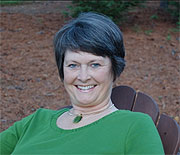arcia Muller is the author of the Sharon McCone mystery series, numbering thirty volumes to date. She began writing the series in the ’70s, and it continues to amaze readers globally as McCone has evolved from a dial phone to computer searches for the criminal element. She’s an award winner and member of Mystery Writers of America as well as Sisters in Crime. She lives in Sonoma County, California where she writes religiously five days a week. Let’s welcome Marcia and try to glean some genius from her decades of efforts and success.
***
WOW: I just read Locked In, your latest Sharon McCone mystery. You make juggling so many characters and plots seem elementary. Your stories continue to capture the reader, though, even with this being the 30th Sharon McCone novel. You seem to be a bottomless well of material.
In spite of your talent, in reality, your publishing origin wasn’t easy. Your creative writing instructor told you to forget about fiction so you became a journalist. Your newspaper editor thought you were more creative than journalistic. After three manuscripts and five years of rejection you found a publisher for the first Sharon McCone book only to soon lose them when they ceased publishing mystery. It took you four more years before you found St. Martin’s Press for book two of your series.
Please, tell us what kept you motivated through this roller coaster? In times like these, when the publishing world seems to have lost its direction, those of us still seeking acceptance wonder how to dig down and find that drive you have.
MARCIA: It was a rocky start, and many times along the way I was tempted to give up. But, like most writers, I am driven—I have a compelling need to write. That, and the encouragement of fellow writers, kept me going. It also helped that I have a few marketable skills, and in the lean times kept my hand in by undertaking editing assignments.
WOW: Wow, you’re innovative, a fighter. That’s what our readers need to hear. Apparently, your strengths are infused into your protagonist, Sharon McCone. You created a dynamic female role model in the ’70s, back when strong women struggled for recognition. Almost four decades later, how do you keep her relevant? Sue Grafton’s Kinsey Millhone alphabet series still operates in the 1980s without faxes, cell phones, and computers, yet Sharon McCone operates in present day with its assortment of electronic conveniences and crime-fighting technology. Is it difficult to stay modern?
MARCIA: It’s not difficult to stay modern, since I am surrounded by all those frequently annoying gadgets. What is difficult is the gadgets make investigating a case much easier than in the old days. I have to complicate the plots, as well as find ways for the gadgets to be disabled. You’ll notice Sharon’s cell is discharged or out of range of a signal a good deal of the time.
WOW: I’ve used the no-signal aspect a lot myself. Cell phones and smart phone devices keep our characters almost too connected to create the tension you need for a great mystery. You broke ground with your female mystery series years ago. Today, many female protagonists exist, and a woman in private investigation or law enforcement isn’t so novel. I hope you realize you had a hand in that advancement. Kudos to you. What advice do you have for women writers and their characters today? How can we grab attention with so much competition?
MARCIA: I’d advise they write characters who could be real people—no gimmicks. Give the protagonist a life, surround her with friends, family, co-workers. Give her flaws, as well as strengths.
WOW: Speaking of flaws, so many female protagonists in mysteries are damaged from previous relationships or single by choice. Guess that’s part of the tension, but few books use “real” protagonists these days because it’s not considered intense enough. How marketable do you think a female protagonist would be who totes the baggage of family, notably children?
MARCIA: Children? Why not? Their presence would provide interesting personal complications. But again, make them real people, not caricatures.
WOW: This issue of WOW! focuses on literary agents. In your struggling years, did you operate with or without an agent? When did you find the agent you have now, and how difficult was the process? Have you held the same agent throughout your career or have you dabbled in several experiences, seeking the perfect one? There seems to be a mystique about landing an agent. Enlighten us.
MARCIA: I sold my first novel directly to an editor, who then recommended an agent to vet the contract. That relationship and two subsequent ones didn’t work out. For a number of years, I was with a good agency, but my individual agent underestimated me, wasn’t willing to push for larger advances or more promotional support. At a conference, a friend introduced me to Molly Friedrich, who has been a terrific agent and friend for the past 23 years. You just have to keep looking ’til you find the right match.
“If you have a bad agent, you might as well have none at all.”
WOW: So the challenges continue even for the successful writers. Finding one agent doesn’t mean you’ve arrived in the business. Times are changing so fast in publishing. With the industry enduring so many growing pains, do you suggest writers seek an agent to navigate? What would you suggest as the best way to connect with an agent?
MARCIA: Agents are not always the answer, especially in today’s publishing climate. If you have a bad agent, you might as well have none at all. The best way to find a good one is through a contact who recommends someone. This means networking, going to writers’ conferences, meeting people who can help. And, believe me, most people want to help.
WOW: So don’t be afraid to walk up to folks in the business, introduce yourself and ask questions. That’s good to know. You make it sound possible for those of us still searching. Frankly, your continuing presence in the mystery genre serves as an inspiration for women authors, new and seasoned. But do you have any particular stories about mentoring writers along the way?
MARCIA: I’ve always been available to read advance proofs and give blurbs. If friends are having trouble and want me to take a look at a manuscript, I do. Rather than mentor, I think members of the writing community nurture one another.
WOW: Just like the WOW environment—women helping women. Nurturing probably is more our nature. On another subject, you have an intriguing hobby: creating fully electrified miniature houses that represent structures from your Sharon McCone novels. They are remarkably detailed.
I can’t see this craft as a getaway from your profession since it seems to feed it, inserting you in Sharon’s world through a tangible angle. Did you start this hobby to aid your visual efforts in creating the settings in your books? Do you ever get away from Sharon or does she accompany you everywhere you go, in all you do?
MARCIA: Yes, my hobby feeds my work. Helps me visualize certain settings. I’m down to doing room boxes now—no space for any more big ones. And repairs—the rooms and houses are always needing them, just like real houses. Sharon is not always with me, but she’s never far away, and you’re right, this hobby keeps her close.

(Photo from Marcia’s website. View more of Marcia’s miniatures here.)
WOW: Do you believe that such an intense focus on a series makes you a better writer? You’ve written shorts and a few other books, but the Sharon McCone theme is pretty consistent, even in the shorts. I’m writing a mystery series as well, and I find using the same characters and many of the same settings make writing easier. Do you recommend finding such a strong niche for new writers?
MARCIA: The intense focus gives me the ability to deepen not only McCone but the secondary ongoing characters. I can experiment with theme and plot and not worry about what an individual character will say and do because I know them so well.
WOW: I fully agree. Your readers can tell, too. So can your peers as evident from the accolades you’ve received. In 2005, you were named a Grand Master by Mystery Writers of America, the organization’s highest award. How important is it for a writer, new or established, to belong to professional organizations like Mystery Writers of America and Sisters in Crime, two notable entities in the mystery niche?
MARCIA: New writers should definitely join MWA and SinC. Professional organizations are a great way of making contacts and learning about the business. Plus they’re nice groups of people, always willing to assist each other, and the meetings are fun!
WOW: You have wonderful support through your author husband, Bill Pronzini, with whom you’ve co-written several books. He was chosen Grand Master by Mystery Writers of America in 2008, three years after your selection. That has to be incredible living with a co-master in the genre. How important is that support structure to you and your writing? Many women dream about such support. Do you have advice for women who live amidst non-writers who do not understand the effort that comes with becoming a professional writer?
MARCIA: Bill’s support is vital to me. I wouldn’t have the kind of career I do without him. I recognize that many do not have the luxury of a writing husband or significant other. My suggestion is that women who live among non-writers should set ground rules and stick to them: writing is a job, not a hobby that can easily be interrupted or set aside for a better day. In other words, leave me alone when I’m working!
WOW: I’ve used those very words in my household. We’ve reached the end of our interview, and I’d like to ask you to leave us with a word of advice to those of us fighting for an agent, grasping for that publishing contract. Give us a pearl of wisdom that is truly Marcia Muller.
MARCIA: Well, I don’t know if this is a pearl of wisdom, but: sit down every day and write something, even if it’s as little as a page. Learn your craft. Organize a critique group if you feel isolated; there are writers working alone and lonely in almost every place, and they’ll respond to an ad in the local paper. Critique groups can be quite important to a struggling writer. Make those important contacts, too, by networking. And do your own work. Don’t follow current publishing trends, because by the time you have a manuscript done, they’ll no longer be trendy. Be true to yourself.
Thanks so much, Marcia. We’ll be sure to follow you at your website https://www.marciamuller.com/ and look for Sharon McCone’s latest adventure in Locked In published in hardback and Burn Out in paperback, both released this fall.
***

C. Hope Clark is founder of FundsforWriters.com by day and a mystery series writer by night. Her Carolina Slade series is in the hands of an agent, making the publishing rounds. She lives in South Carolina, writing on the bank of Lake Murray with her supportive, federal agent husband.